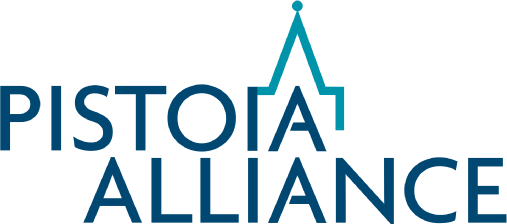Recent Press Release: Boston & London, Wednesday 15 May, 2019 –
The Pistoia Alliance, a global non-profit that works to lower barriers to innovation in life sciences R&D, today announced new survey results showing access to data (52 percent) and lack of skills (44 percent) are the biggest barriers to the adoption of AI and machine learning (ML). These same issues were also identified by scientists in 2017 – when 24 percent of respondents cited access to data as the biggest challenge to AI adoption, and 30 percent cited lack of skills. Despite these barriers, use of AI in the life sciences has increased in the past two years, with 70 percent of respondents stating they are using AI, including machine learning and deep learning, in some capacity, up from 44 percent in 2017.
“AI has the potential to make a real difference in life sciences, particularly when we look at how data can be used ‘for good’, such as in the drug repurposing datathon we ran with Elsevier earlier this year,” commented Dr Steve Arlington, President of The Pistoia Alliance. “In the life sciences, there is no room for error when it comes to AI, and in order to make the technology work for the industry, we need highly-trained, specialist data experts to meet this challenge. There is now also an abundance of data streams – such as Real World Evidence, clinical trials data, and genomic data, which could have real value in drug discovery and development, as long as we’re able to analyse it. The industry must work closely with academic organisations and educators to highlight these opportunities, and attract the next generation of data scientists.”
The survey also highlighted that data quality is another recurring challenge to AI adoption and value; in 2018, 66 percent said data quality was the biggest barrier to using AI in drug design, in 2017, a quarter (26 percent) said it is one of the biggest barriers to all AI projects. Data quality is a problem the life science industry can take immediate steps to address, by ensuring their data complies with the ‘FAIR’ principles; ensuring it is Findable, Accessible, Interoperable and Re-useable. Despite these continuing challenges, less than half (46 percent) of respondents have a team of data scientists in their company dedicated to improving data quality, and only 15 percent said their organisation is planning to build such a team. Given AI adoption in the life sciences looks set to flourish, in order to safeguard patients and reassure regulators, those in the industry must work together to ratify and implement data standards and protocols.
“Our research has shown the life science industry is very interested in AI adoption, but that the same issues are still hampering it’s use,” commented Dr Nick Lynch, Strategy Lead for The Pistoia Alliance’s AI Center of Excellence (CoE). “This is why The Pistoia Alliance created our Center of Excellence in AI for Life Sciences. We wanted to provide an opportunity for the industry to work collaboratively on implementing AI successfully, from sharing best practices to collaborating on improving access to quality data – including working to implement standardised data formats that will accelerate adoption. But this won’t happen until we have the life science industry, technology specialists, vendors, and regulators, all in the same ‘room’ and working together to solve the same problems.”
The Pistoia Alliance is looking for guidance on the topics it should provide further education and training around, including in its webinar series. Individuals and organisations can provider their suggestions by completing the survey here. This research was conducted via a series of webinars between October 2018 and February 2019 with 190 respondents from the US and Europe.
Join the Center of Excellence for AI in life sciences mailing list here to receive news of events, projects and datathons. For more information on The Pistoia Alliance’s work on AI, please contact Valdimir Makarov.
